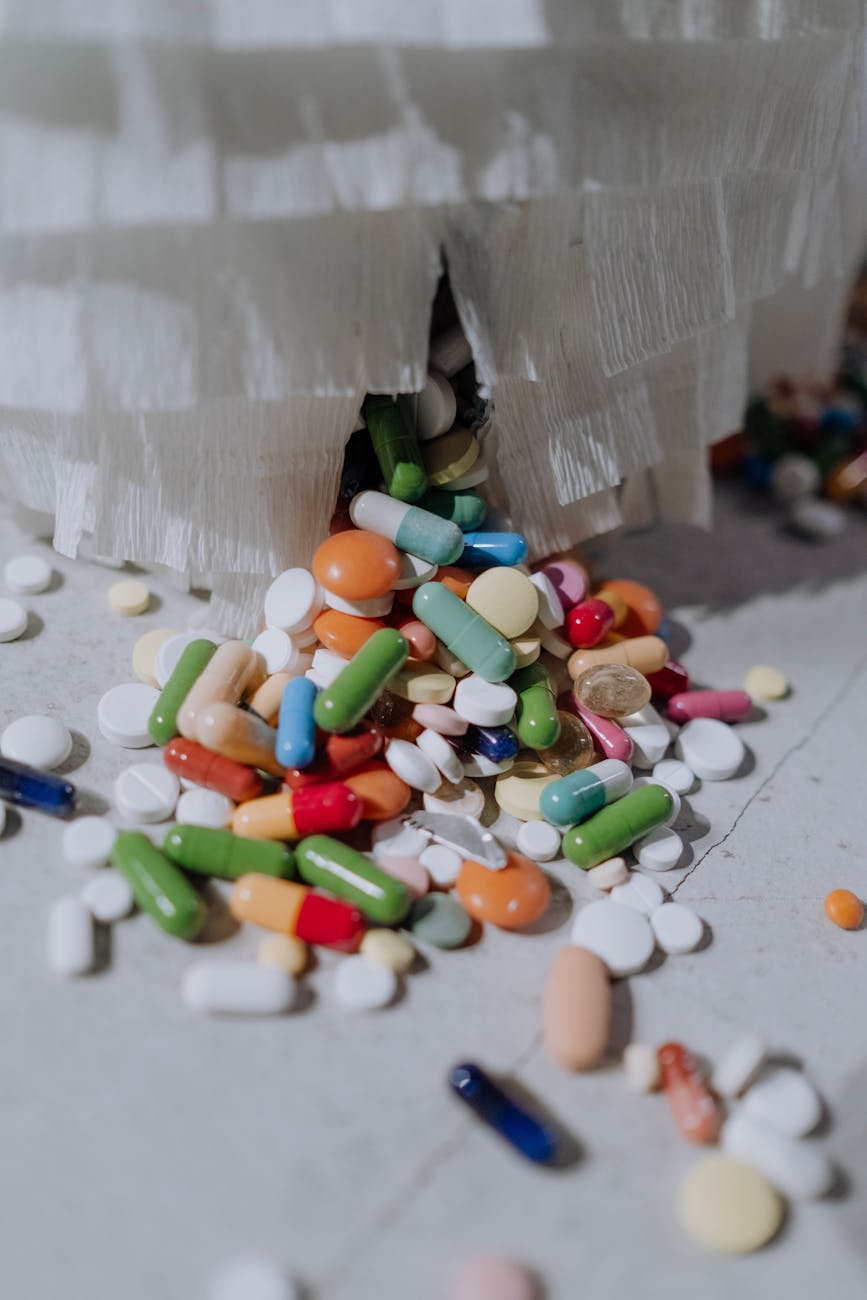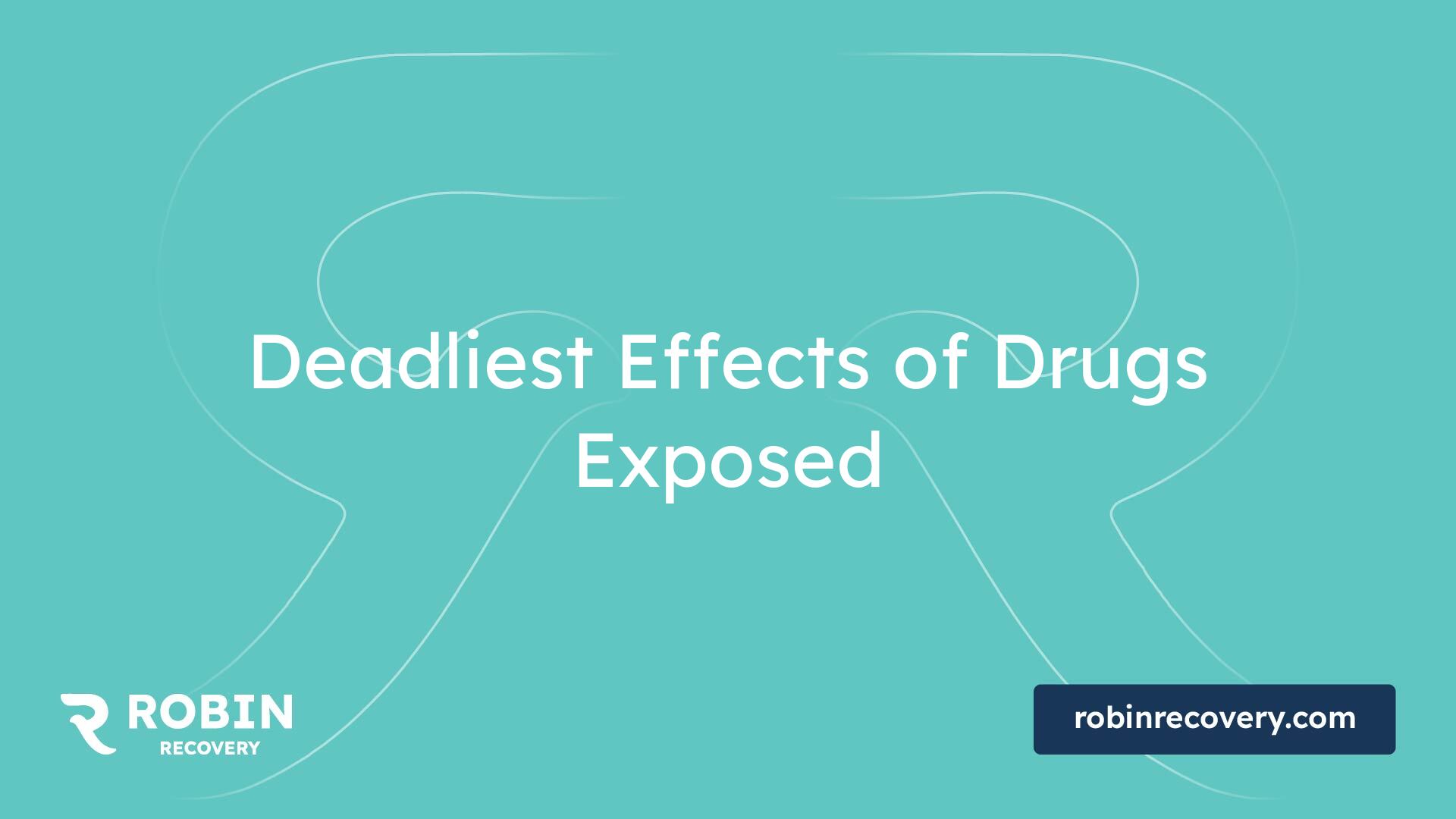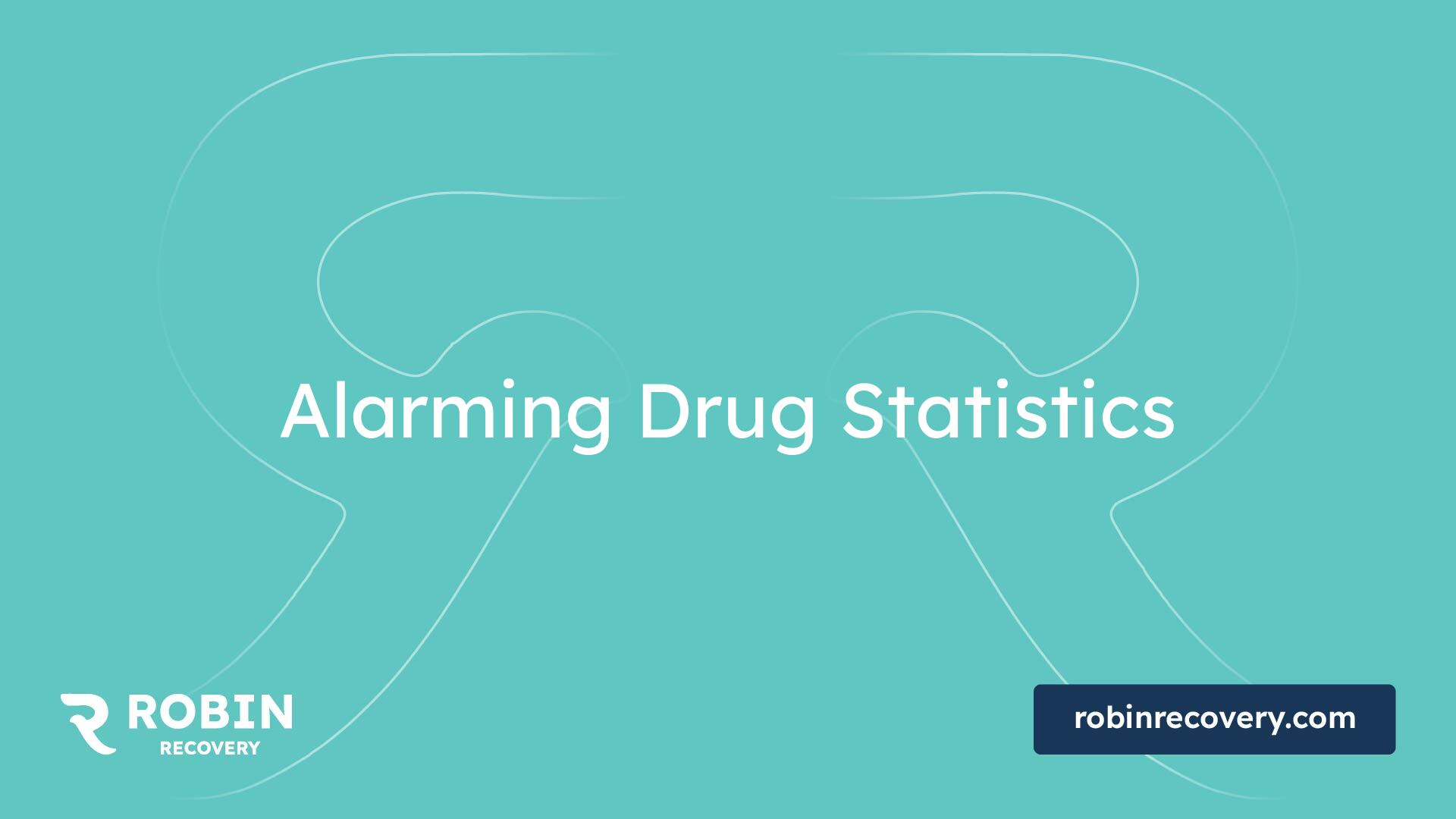Deadliest Effects of Drugs Exposed

Understanding Drug Addiction
Drug addiction is a complex condition that affects individuals and society as a whole. This section outlines the impact of addiction on personal lives and the wider community.

Impact on Individuals
The effects of addiction on individuals can be devastating. Addiction can lead to severe health consequences, including overdose and death, particularly with substances like opioids [1]. Individuals may experience serious health problems, struggling with conditions such as heart disease, stroke, and various cancers. Mental health disorders are also common among those battling addiction.
The following table summarizes the common negative personal impacts of addiction:
ImpactDescriptionDeteriorating relationshipsAddiction often causes strain on personal and familial relationships.Poor academic performanceThose struggling with addiction may experience declines in their academic work.Employment lossAddiction can lead to job loss due to absenteeism or decreased performance.Mental health declineIndividuals may face increased anxiety, depression, and social withdrawal.Increased health risksHigher susceptibility to illness and conditions due to weakened health.
As addiction progresses, individuals often find it increasingly difficult to maintain their daily responsibilities and overall well-being.
Societal Consequences
The societal consequences of addiction are equally significant. Substance misuse leads to a wide range of health and social problems impacting not only the individual but also the community. Issues such as drunk driving, sexual assault, and unintended pregnancies can arise from impaired judgment due to drug and alcohol use [2]. Furthermore, addiction can contribute to property crimes and violence, causing feelings of insecurity and fear within communities.
The table below illustrates some notable societal impacts of drug addiction:
Societal ImpactDescriptionEconomic costsIncreased healthcare costs and lost productivity add financial strain on society.Criminal activitiesSubstance-related crimes can lead to safety concerns in communities.Public health issuesHigher rates of diseases that require public health intervention.Strain on support systemsIncreased demand for mental health and addiction treatment resources.
Understanding the deadliest effects of drugs is crucial for addressing these issues and developing effective prevention and treatment strategies. By recognizing the diverse impacts of addiction, efforts can be directed toward education, support, and rehabilitation to help individuals and communities recover. For additional insights on recovery options, explore what is rehab like? or learn about the history of addiction.
Alarming Drug Statistics

The effects of drug addiction extend beyond the individual, significantly impacting communities and economies. Understanding the scale of overdose deaths and the economic burden is essential in recognizing the deadliest effects of drugs.
Overdose Deaths
Overdose deaths in the United States have reached alarming levels, impacting families and communities across the nation. In 2022, nearly 108,000 individuals died from drug-involved overdoses, which includes both illicit and prescription drugs. The statistics reveal a stark reality about the growing crisis surrounding drug use.
YearTotal Overdose DeathsSynthetic Opioid DeathsMethamphetamine Deaths201552,4049,5805,716201970,63036,35916,3942022107,94173,83834,022
synthetic opioids (primarily illicitly manufactured fentanyl) have been a primary contributor to these numbers, with 73,838 reported overdose deaths in 2022. The rise in deaths from psychostimulants, primarily methamphetamine, also underscores the complexity of today's drug crisis.
Economic Burden
The financial implications of drug abuse are staggering. In 2017, the cost of drug addiction in the United States was nearly $272 billion. This figure takes into account various aspects, such as crime, healthcare needs, lost work productivity, and other societal impacts [4].
Factors contributing to this economic burden include:
The vast economic ramifications highlight the urgent need for effective prevention and treatment strategies to combat the addiction crisis and alleviate the financial strain on society. Understanding these statistics is crucial for developing supportive policies and programs aimed at facilitating recovery and saving lives. For more insights on addiction treatments, consider reading about what is rehab like? and the qualities of the best rehab centers.
Deadliest Effects of Specific Drugs
Understanding the deadliest effects of drugs is critical in addressing the addiction crisis prevalent in society today. This section focuses on three substances: opioids, methamphetamine, and cocaine, which are known for their severe impacts on health and well-being.
Opioids
Opioids have emerged as one of the leading causes of drug-related deaths. They are highly addictive substances that can lead to respiratory depression, overdose, and death. In 2022, the U.S. saw a staggering increase in opioid-related overdose deaths, with a total of 81,806 fatalities, a rise from 49,860 in 2019. These figures include prescription opioids, heroin, and synthetic opioids such as fentanyl, which accounted for 73,838 fatalities alone that same year [3].
YearOpioid-Related Deaths201949,860202281,806
Opioids can create a cycle of addiction that can be hard to break. Within this context, understanding the risks associated with the most abused prescription drugs is essential for prevention efforts. More details can be found in our article on most abused prescription drugs.
Methamphetamine
Methamphetamine is a powerful stimulant that can lead to severe health issues. The drug increases energy and alertness but has devastating effects on the body. Chronic use can lead to serious cardiovascular problems, severe dental issues (often referred to as "meth mouth"), and significant weight loss.
While specific mortality statistics for methamphetamine alone might not be as widespread as opioids, the drug poses an undeniable risk of overdose and severe health complications. Individuals who use methamphetamine often experience intense cravings and a high potential for addiction.
Cocaine
Cocaine has seen a significant increase in overdose deaths over the past several years. From 6,784 deaths attributed to cocaine in 2015, the number surged to 27,569 deaths by 2022. This 73.5% rise underscores the escalating severity of cocaine use as a public health concern [3].
Cocaine can lead to severe health issues, including heart attacks, strokes, and respiratory failure, illustrating the drug’s potential for deadly consequences. For those considering treatment options, understanding the role of professional help is crucial. More information is available on what to expect with what is rehab like?.
In summary, the deadliest effects of opioids, methamphetamine, and cocaine highlight the need for widespread education, preventive measures, and accessible treatment options to combat drug addiction effectively.
Behavioral and Health Impacts of Addiction
Understanding the behavioral and health impacts of addiction is vital in grasping the full scope of its dangers. This section outlines how tolerance and dependence develop alongside the long-term health consequences associated with various substances.
Tolerance and Dependence
Tolerance occurs when an individual needs to consume larger amounts of a substance to achieve the same effects that were once obtained with smaller doses. This condition is a common consequence of prolonged drug use, often leading to increased consumption and a heightened risk of overdose. Dependence on drugs means that the body becomes accustomed to functioning with the substance, leading to withdrawal symptoms when not using it.
SubstanceCommon Tolerance EffectsDependence SignsOpioidsNeeds higher doses for pain reliefWithdrawal symptoms such as nausea and diarrhea (oxycodone withdrawal symptoms)MethamphetamineRequires larger amounts for the same highCravings and agitationAlcoholIncreased intake for intoxicationTremors and headaches during abstinence
Chronic opioid misuse is particularly severe, often resulting in respiratory depression, constipation, nausea, and vomiting, with the risk of overdose and death [5].
Long-Term Health Consequences
The long-term consequences of addiction can be devastating, affecting both physical and mental health. Different substances contribute to various adverse effects.
SubstanceLong-Term Health EffectsOpioidsRespiratory issues, organ damage, gastrointestinal problems (American Addiction Centers)MethamphetamineMemory loss, impaired coordination, severe dental problems (American Addiction Centers)AlcoholBrain changes affecting cognition, liver and heart disease (American Addiction Centers)MarijuanaCognitive impairment, respiratory issues, risk of addiction to other substances (American Addiction Centers)
Individuals with a history of substance abuse not only face physical health concerns but also psychological issues such as anxiety, depression, and cognitive deficits. These can have enduring effects on one’s ability to function socially and professionally. Understanding these impacts is essential for developing effective prevention and treatment strategies. For further insights into recovery, consider our articles on what is rehab like? and qualities of the best rehab centers.
Prevention and Treatment
Relapse and Overdose Risks
Relapse is a significant risk factor for individuals struggling with addiction. When a person relapses into drug use after attempting to quit, it can be particularly dangerous. The body may no longer be adapted to the previous level of drug exposure, increasing the likelihood of overdose. An overdose can result in severe symptoms, life-threatening conditions, or even death.
Relapse rates for drug use are comparable to those of other chronic medical illnesses. If individuals discontinue their treatment plans, the chances of returning to drug use significantly rise [6]. Although relapse is often seen as part of the recovery process, implementing effective prevention strategies is crucial.
Relapse Rates ComparisonDrug AddictionHeart DiseaseAsthma
Addiction Treatment Approaches
Addiction treatment involves various strategies aimed at counteracting the disruptive effects of drug use on the brain and behavior. These methods help individuals regain control over their lives. Treatment is likened to managing other chronic illnesses and is not considered a cure, but rather a way to manage the condition [6].
Different treatment approaches include but are not limited to:
The goal of these strategies is to empower individuals to stop using drugs and lead productive lives in recovery. Rehabilitation and support can vary based on individual needs, thus highlighting the importance of personalized treatment plans. For more insights on rehab culture, refer to our article on what is rehab like? and for understanding treatment options, check what does a drug abuse counselor do?.
Risks and Effects of Drug Use
The repercussions of drug use are far-reaching, impacting both physical health and mental well-being. Understanding these risks is crucial in recognizing the deadliest effects of drugs.
Physical and Mental Impact
Drug use can result in a wide range of negative consequences for physical health. Chronic use of substances like marijuana can lead to cognitive impairment, respiratory issues, and a heightened risk of addiction to other drugs. Additionally, users may experience deteriorating relationships, poor academic or job performance, and an increased risk of illness or death [2].
Effect TypePhysical ImpactMental ImpactMarijuanaRespiratory issues, cognitive impairmentDepression, anxiety, increased addiction riskStimulants (e.g., Cocaine, MDMA)Heart issues, sleep disturbancesImpulsiveness, irritability, addictionHallucinogensNausea, increased heart rateHallucinogen persisting perception disorder, flashbacks
It's evident that addiction does not only affect the user but also extends its impact on families and communities.
Impact on Central Nervous System
Drugs significantly affect the central nervous system (CNS), altering thoughts, feelings, and behaviors. This impact depends on the type of drug used. The main categories of drugs include:
Prolonged use can lead to tolerance, where users require larger doses for similar effects, and dependence, leading to behaviors where drugs become prioritized over other life activities. Users can face a range of mental health challenges, including mood disturbances and chronic mental health conditions, contributing to the cycle of addiction.
Understanding these risks is crucial for anyone concerned with the implications of drug use on personal health and societal well-being.
References
[2]:
[3]:
[4]:
[5]:
[6]:
[7]:
